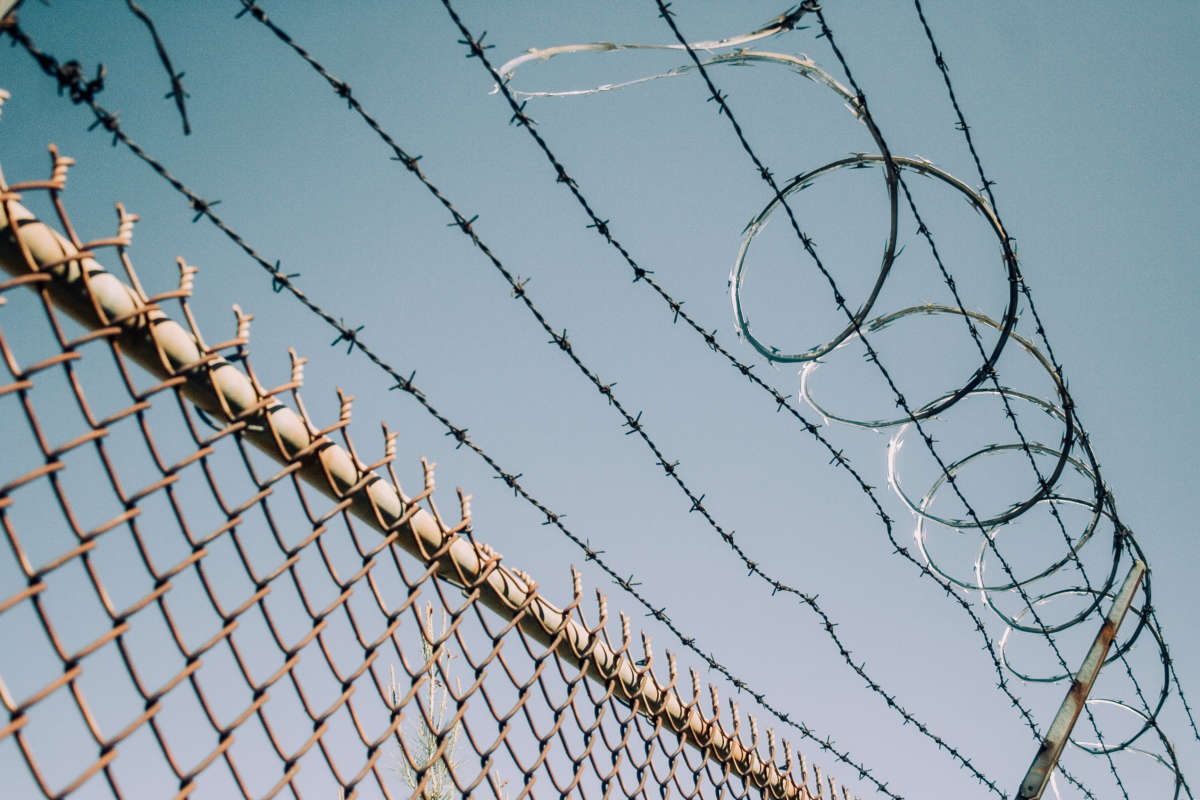Part of the Series
Despair and Disparity: The Uneven Burdens of COVID-19
The Road to Abolition
I know for a fact that there’s no one inside the Swanson Center for Youth or the Office of Juvenile Justice (OJJ) looking out for the health and safety of my son. And now, due to the OJJ’s new no-visitation COVID policy, I can’t be there for him, either.
As COVID-19 numbers spike among children across the country, parents are understandably growing more and more worried about their kids. While families, teachers and lawmakers all struggle to navigate keeping young people safe amid a constantly evolving pandemic, one group of children gets increasingly neglected from care: those in the incarceration system. I should know — my son was incarcerated by the state six years ago at the young age of 13 and remains under the OJJ’s “care” at Swanson youth prison in Monroe, Louisiana.
Louisiana notoriously has one of the worst youth incarceration systems in the country. Amid a pandemic, the conditions at youth prisons have become all the more inhumane. At Swanson, where my son is held, the facility claimed that they kept up with sanitization, but my son was in the infirmary with COVID for three months, and they refused to share any information about his well-being. I later learned there were times he could not eat or breathe. I still worry about his general health because he has told me about mold in the showers, which makes it clear that the prison is not a clean or safe place. I’m sure every parent can understand how traumatizing is for me to not know the state of my child’s health.
Although the pandemic has worsened conditions in youth prisons, this abusive treatment has been ongoing since the moment my son was placed behind bars. I have seen him bruised and black-eyed during visits, and no one has been held accountable. He recently told me that he and the boys in his dorm had to barricade the door from other boys in Swanson who were trying to hurt them. He and his dormmates couldn’t sleep because they were too afraid. The proof is endless: The conditions at Louisiana youth prisons are unacceptable. There are countless reports of abuse and carelessness, which during the pandemic has led to COVID-19 outbreaks, and other gross mishandlings from the people who are supposed to be in charge of these young peoples’ safety. It’s no surprise then, that these conditions lead to youth attempting to escape.
Given Swanson’s history of horrific abuse, it’s unfathomable to me that Gov. John Bel Edwards could support the rebuilding of the prison. Reports of these instances of violence and abuse are swept under the rug so that the OJJ can open a new facility and grow their profit. Our economy in Monroe is invested in these prisons, but our community deserves better jobs. I have personally tried to talk with numerous people at the OJJ and other officials, including the director of Swanson, but they refuse to be held accountable for their cruelty or try to reimagine our economy.
We have known for a long time that youth prisons are ineffective at keeping communities any safer, but we continue to waste money on them. When state recidivism rates are commonly as high as 75 percent, there’s no question that youth prisons are not the rehabilitative places they claim to be. There are no GED programs, mental health services, job opportunities, skills training or preparation for life after incarceration. Kids are also largely unable to communicate with their families, and when they can, it is always under the supervision of Swanson guards, who are often undertrained to make up for staff shortages. These are the same staff members who physically abused my son. How are we supposed to talk freely when they’re listening to every word?
Most Americans across the country agree that youth prisons are not the answer: Seventy-eight percent of Americans support providing financial incentives for states and municipalities to invest in alternatives to youth incarceration in the communities most affected by youth prisons, such as intensive rehabilitation, education, job training, community services, and programs that provide youth the opportunity to repair harm to victims and to provide communities with life-affirming work. We should be putting our well-being first instead of falling on “tough on crime” approaches that disproportionately lock up Black kids more than their white peers.
My son deserves to be kept safe from abuse, illness and unnecessary cruelty. Young people need mental health services, supportive housing and fair access to education to mitigate crime by attacking the root causes. Swanson, like all youth prisons, only serves to punish kids for their mistakes, not help them grow and learn. We need to shut them down now and rebuild our systems in a way that actually helps our children.
Press freedom is under attack
As Trump cracks down on political speech, independent media is increasingly necessary.
Truthout produces reporting you won’t see in the mainstream: journalism from the frontlines of global conflict, interviews with grassroots movement leaders, high-quality legal analysis and more.
Our work is possible thanks to reader support. Help Truthout catalyze change and social justice — make a tax-deductible monthly or one-time donation today.
